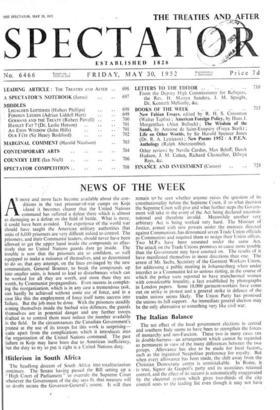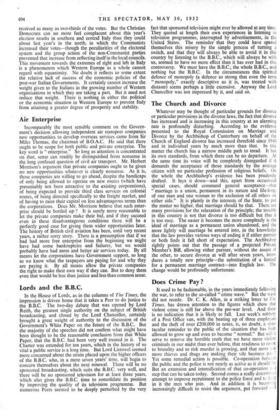The Italian Balance
The net effect of the local government elections in central and southern Italy seems to have been to strengthen the forces of monarchy and neo-Fascism. These two in many cases ran in double-harness--an arrangement which cannot be regarded as permanent in view of the many differences between the two groups. Allowance has also to be made for local factors._ such as the ingrained Neapolitan preference for royalty. But when every allowance has been made, the shift away from the Christian Democratic centre is unmistakable. In Rome, it -is true, Signor de Gasperi's party and its associates retained control, and the effect of its success is automatically exaggerated by the electoral system which gives two-thirds of the city council seats to the leading list even though it may not have received as many as two-thirds of the votes. But the Christian Democrats can no more feel complacent about this year's election results in southern and central Italy than they could about last year's in the north, in which the Communists increased their votes—though the peculiarities of the electoral system and the group action of the non-Communist parties prevented that increase from reflecting itself in the local councils. This movement towards the extremes of right and left in Italy is a phenomenon which Western Europe as a whole cannot regard with equanimity. No doubt it reflects to some extent the relative lack of success of the economic policies of the post-war Italian Governments. It certainly cannot increase the weight given to the Italians in the growing number of Western organisations in which they are taking a part. But it need not reduce that weight. There is nothing in either the political or the economic situation in Western Europe to prevent Italy from attaining a greater degree of prosperity and stability.











































 Previous page
Previous page